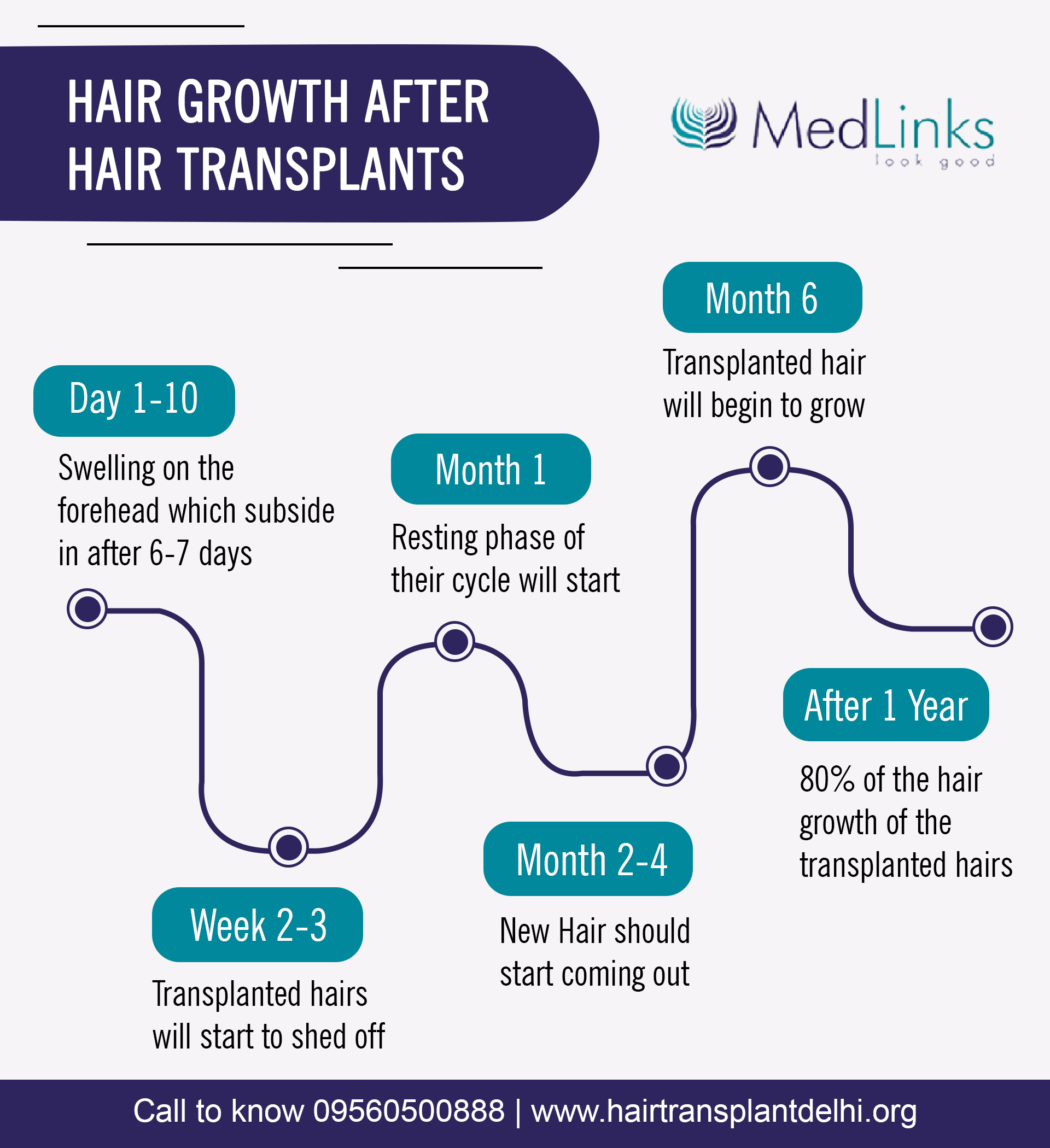
Undergoing a hair transplant may be challenging. Just thinking about the consequences can be stress-inducing. However, advanced medical technologies assure higher success rates and satisfying results. Instead of worrying about the consequences of a hair transplant for the existing hair, one needs to stay informed. This article is going to help you with just that.
Here, we will be discussing the expectations, possible complications and demystify some of the myths that people have concerning this cosmetic procedure.
Feel free to skip ahead if one topic catches your eye:
Our hair naturally grows from the hair follicles present in our skin. It is the protein cells at the bottom of the follicle, from where the hair grows. The follicles are also supplied with the essential blood vessels then promotes healthy growth of the hair and maintains the natural hair cycle.
The natural hair cycle is divided into four stages:
As the hair gradually grows from the follicles, it pierces through the layers of the skin before it pokes out and is visible on the scalp. The follicles are also supplied with sebaceous glands, which supply the oils to keep them lubricated and promote healthier growth of the hair from the follicles.
Sometimes, due to lifestyle issues or even due to genetic predisposition, hair follicles are subjected to damage permanently. This prevents further hair growth at the site of the hair follicle, thereby resulting in hair thinning and gradual balding in the respective sites of the scalp.
The concept of hair fall after a hair transplant in india is often perceived as a bad thing with permanent damage, which is not the case at all. It is a myth that the existing hair all over the scalp is affected after a hair transplant. On the contrary, it is only a small number of existing hair around the transplant site that experiences temporary impacts.
During a hair transplant surgery, the surgeons extract the hair follicles from the donor site on the scalp and then implants the same into the balding site on the scalp. The existing hair present in the recipient site undergoes miniaturization.
Under this procedure, the size and length of that hair start decreasing gradually. It is the miniaturized hair around the recipient site that falls out eventually. But, to ensure higher success rates of the hair transplant surgery, the surgeon generally implants through the miniaturized hair.
The condition primarily occurs while working on the recipient site where the grafts from the donor site are implanted. It cuts the circulation around the scalp, causing hair to fall. However, this process of hair fall is temporary and it gradually regrows in the scalp.
The only thing you need to keep a check on is the proper placement of the grafts and ensure that they stay in place. Keep in mind that it is only the grown hair strands from the follicle that fall out. The roots stay intact inside the follicle, enabling future regrowth of the hair.
So, to answer your question, “Does hair fall after hair transplant?”, yes, it does. But, it is a temporary process that is caused by the shock that the scalp undergoes.
 `
`
While hair thinning after transplant or even temporary hair fall is common, any kind of prolonged hair damage is a sign that the procedure hasn’t been done right. And, there are several reasons that could be behind the likely unsuccessful procedure.
Some of the most common ones include:
Hair transplant is a very crucial and precise procedure that involves extensive surgery. Getting it done by a cosmetologist with no prior experience will reflect on the final results. Not only are you likely going to see no hair growth at the site of the transplant, but you might also experience sustained hair thinning, hair fall, and permanent scarring on the site.
This is why you need to do research before you book an initial consultation with a surgeon. Look through their certifications, qualifications, and the kind of professional experience they have with hair transplants. This is crucial and can’t be taken for granted. The less experience the surgeon has, the more likely the patient will experience complications. So, be wary while choosing the surgeon for the procedure.
Other than the actual procedure, it is the aftercare that matters. If you aren’t taking proper care of the site, there are chances of trauma to the implanted grafts. This leads to heightened complications and prevents healthy regrowth of the hair in the recipient site of the scalp.
Another complication one experiences after a hair transplant is an unprecedented reaction to the medications. If you are witnessing uncontrolled hair loss after the transplant, it is crucial that you get the same evaluated by your consulting surgeon before it takes a turn for the worse. Your surgeon can also point out if the hair fall is because of a side-effect from any medication that you are consuming.
Undergoing a hair transplant may be a very stressful situation. So, if you are planning on spending your money, always ensure that you get it done from the best hair transplant centres and by experienced surgeons. All the common complications that one experiences after a hair transplant, including hair loss and delayed hair regrowth, are all temporary.
At Medlinks, you get the best hair transplant treatment with the latest medical techniques like Perfect-I, all at affordable hair transplant cost in delhi and with proper aftercare.

Dr. Gaurang Krishna

Copyright © Medlinks. All Rights Reserved.
Disclaimer:The content published on this website(hairtransplantdelhi.org) is meant to spread awareness and educate the concerned patients regarding baldness and hair transplants as well as the treatment options available for baldness and hair transplant treatment in Delhi India. Any information on the website shall not be regarded as a prescription from a professional dermatologist. We recommend visiting a dermatologist in person for the right diagnosis and the treatment for any hair issues. We do not guarantee specific results as the treatments and the results vary from person to person.